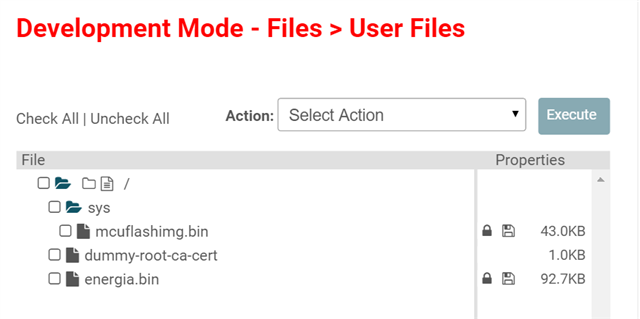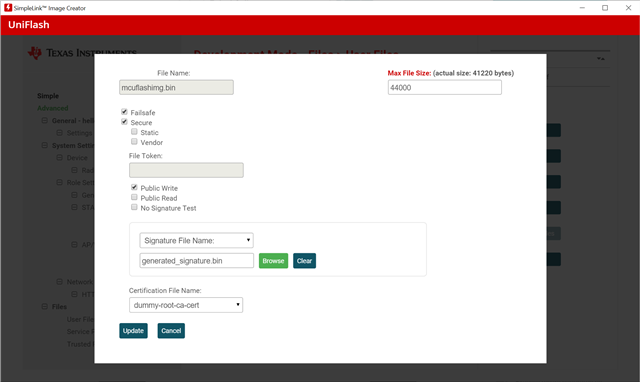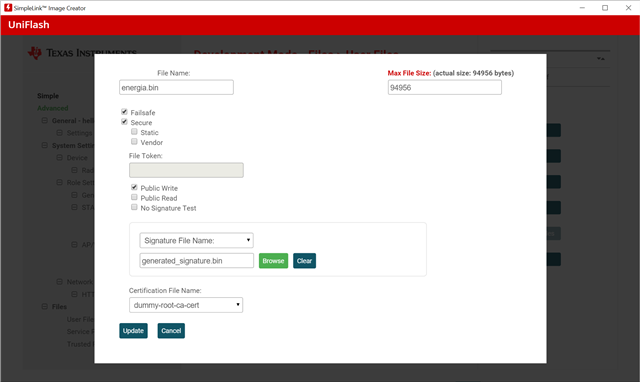Other Parts Discussed in Thread: UNIFLASH, ENERGIA, CC3220SF, CC3220S,
Hello Team,
I read several comments on e2e regarding "how to flash an Energia binary with Uniflash" and I tried them all without success.
I used CCS Cloud, imported the Energia Sketch "blink", run it successfully on the launchpad. Then I downloaded the blink.bin and opened Uniflash.
In the simple view I browsed to the blink.bin in the MCU Img field and I also entered the path to the latest service pack. Then "Burn", then "Program Image",
During programming all seems to work without any errors but the application does not work. I only can flash the OOB binary...SOP is in position 1.
Thanks for your help and best regards,
Hans





